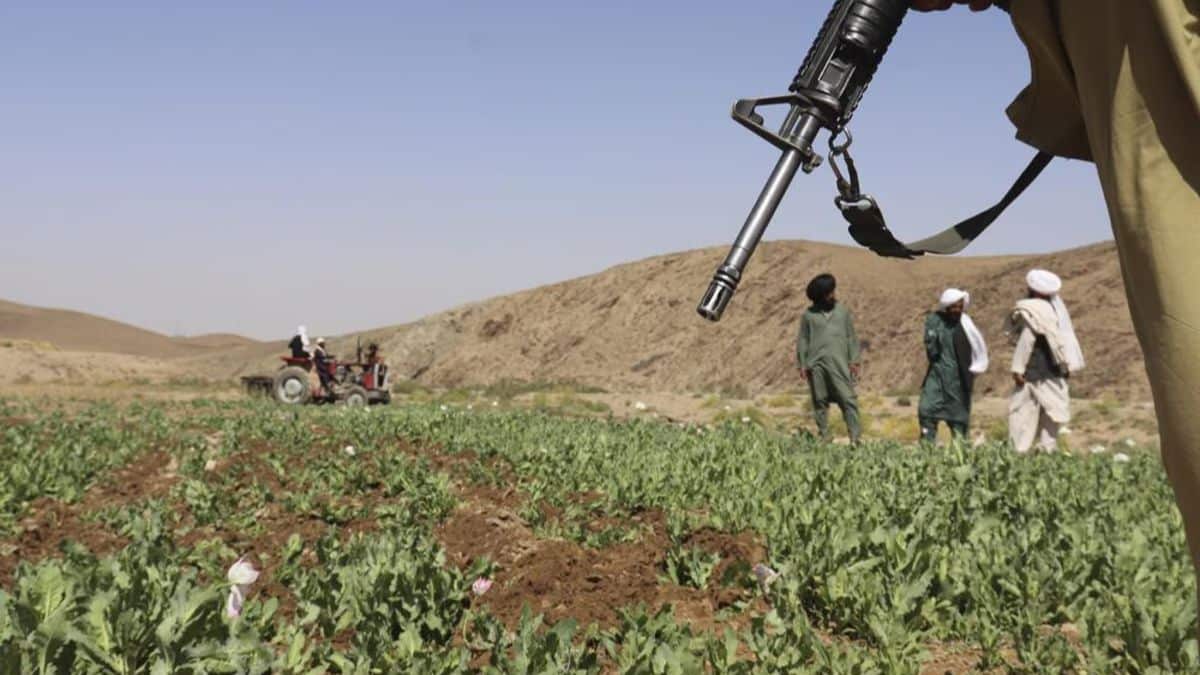The Taliban’s recent crackdown on poppy cultivation has ignited rare protests across Afghanistan. Historically known for their association with the opium trade, the Taliban’s enforcement of strict measures against poppy farming has stirred unrest among farmers and communities dependent on the lucrative crop.
The move, aimed at curbing the production of illegal drugs, has faced backlash from locals who rely on poppy cultivation as a primary source of income. Many argue that the crackdown threatens their livelihoods and exacerbates economic hardships in an already volatile region.
As tensions escalate, protestors have taken to the streets, demanding a reversal of the Taliban’s policies and greater economic support for affected communities. The unexpected wave of dissent poses a significant challenge to the Taliban’s authority, highlighting the complex socio-economic dynamics at play in Afghanistan.
“Videos of protests posted on social media depicted participants passionately condemning the Taliban’s actions. Draim residents vividly recounted Taliban forces allegedly ‘entering houses and insulting women’ — allegations fervently denied by Interior Ministry spokesman Abdul Matin Qani
In a statement released on Sunday, Taliban spokesman Zabihullah Mujahid announced the establishment of an inquiry committee led by Qari Fasihuddin Fitrat, the Ministry of National Defence’s chief of staff. The committee has been charged with the responsibility of conducting a comprehensive investigation into the matter and presenting its findings to the prime minister’s office.
Amidst escalating tensions, Taliban spokesman Zabihullah Mujahid pointed fingers at the protesters, accusing them of instigating violence by attacking security forces combating poppy cultivation. However, in a later statement to Dawn, Mujahid reassured that the situation in Badakhshan is now under control, attributing the calm to the intervention of a delegation.
Peace in Badakhshan holds paramount importance for the Taliban government due to its strategic location. Sharing borders with China and Pakistan’s Chitral district and situated near Tajikistan, the region’s stability is crucial. The Taliban’s expressed intent to engage in direct talks with China further underscores the significance of maintaining peace and stability in the area. While China maintains amicable relations with the Taliban government, lingering security concerns necessitate a concerted effort towards maintaining order in the region.
Observers warn that the unrest could further destabilize the country and undermine efforts to achieve lasting peace. Amidst growing discontent, the Taliban finds itself navigating uncharted territory, grappling with the repercussions of its controversial policies on both domestic stability and international relations.
The unfolding situation underscores the delicate balance between security imperatives and socio-economic realities in post-conflict Afghanistan. As the Taliban struggles to quell dissent and maintain control, the fate of millions hangs in the balance, with the future of Afghanistan hanging in the balance.

